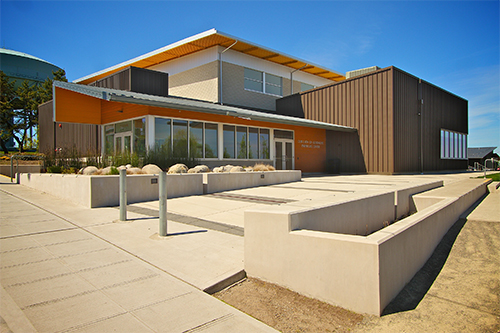Objectives:
- Keep your brain in shape!
- Cultivate your interest and love of stories.
- Learn new information and practice critical thinking.
Objective number 2 is my personal favorite. With this summer reading plan, I hope you all have the flexibility and structure to grow your love of stories and the written word. Here are two resources you will use for summer reading.
- Summer Reading Assignment 2023 (due in class on Thursday, August 31)
- A Sample from Mr. Santos, based on a book I read. My responses are in pink. I’m providing this example to show you how specific your details should be, and approximately how long your responses should be.
Any questions? Email me at jcsantos@guadalupe-school.org. I don’t check my email daily during the summer, so it may be a little while before I respond. I encourage you to answer your own question, erring on the side of doing a little more than what you think I expect.
Overview
We want our students reading a healthy dose of fiction (literary) and non-fiction (informational) texts. We teach them to look at the details and how those details form the bigger picture. We look at author’s purpose and social contexts surrounding the written work. We analyze current events and practice rhetorical discourse in respectful and effective ways. We teach our students about communication – that is, absorbing, processing and divulging information for various audiences. Most importantly, we meet each child at her/his level and elevate their skills. You may have noticed my repetition of the pronoun, “We” at the top of each sentence. That was intentional, as reading and communication skills are necessarily taught across the board, and OLG perpetuates this academic philosophy.
Mr. Santos Daily Notes and Slides: If you are absent or need to review what we did in class today, please check my daily slideshow: 7th Grade LA/Literature Slides. Just scroll to the date you need.
Texts and Resources:
-
Literary Options:
- A variety of short stories
- Revolution is Not a Dinner Party
- Hotel on the Corner of Bitter and Sweet
- A Long Walk to Water
- Tasting the Sky
- Animal Farm
- Excerpts from Chief Seattle and the Town That Took His Name
- Excerpts from Native Seattle: Histories from the Crossing-Over Place
- Shakespeare: A Midsummer Night’s Dream, Romeo and Juliet, or miscellaneous sonnets and selections
- Other texts options are determined based on the year, our students range of reading levels, and relevance to current events.
-
Informational Options:
-
Seattle Public Library: Every middle school student is required to have a Seattle Public Library card and account with their PIN memorized. This is a critical piece in studying informational text and using public databases.
-
NEWSELA: This outlet is commonly used in school settings. It provides current news articles from a variety of sources and has the ability adjust the reading level of each story to fit a student’s level of needed rigor. Here at OLG, we use this not just in LA/Literature, but in content area classes as well.
-
Various articles, podcasts and documentaries curated by the teacher (and occasionally by the students).
-
Skills:
-
Reading (informational and literary text):
- Identifying details and understanding their connection to one another
- Looking at bigger ideas in a piece of writing
- Understanding influences in a piece of writing (author’s purpose, social context)
- Building vocabulary
- Recognizing and analyzing the importance of literary elements (plot, character, setting, theme, etc.)
- Distinguishing and interpreting literal and figurative language
- Questioning sources and recognizing misinformation (bias, fake news, etc.)
- Comparing information across various mediums
-
Writing:
- Constructing clear, precise messages
- Developing a writing process: brainstorming, drafting, resting and revising, sharing, revising and publishing
- Conventions, grammar, mechanics, spelling, punctuation, capitalization, sentence structure
- Developing and organizing ideas
- Writing with style and tone appropriate for different audiences
- Accurately employing new vocabulary words
- Writing different modes: narrative, explanatory/expository, persuasive
- Citing a variety of sources
-
Speaking and Listening:
- Small group discussion
- Asking questions
- Debate
- Presentation skills – poise, voice, gestures, speed, life, eye contact, etc.
- Paraphrasing and expanding on others’ ideas
- Presenting in different formats for different audiences
- Social behaviors and conversation
General Expectations:
-
Participate! Do so in your own way, whether raising your hand, writing descriptively, artistically, small group or large group. Just know that if you struggle in any of these areas, you’ll be encouraged =).
-
Practice aloha (mutual love and respect). You’re middle schoolers. None of you know everything. The teacher doesn’t know everything either. We’re in a learning environment, so allow one another to make mistakes, both academic and social, and do not belittle someone for being imperfect. Be forgiving of self and others. Find ways to be helpful. And be grateful.
-
Always do your best. Every assignment is doable if you put in the effort, which includes powering through struggle and communicating when you need help.
-
Communicate. Your teacher is not some astral being projecting information to you from afar. We are your own personal resource for helping you learn. Take advantage of that!
-
Do your own work. Don’t plagiarize. You will learn the difference between summarizing, paraphrasing and quoting. If your entire essay is a “quote without quotation marks,” that is blatant plagiarism, resulting in a zero on the assignment. I’d rather you NOT turn in an assignment or essay than turn in a copied one. It’s way more hassle for me, you and your parents. And your academic record!

